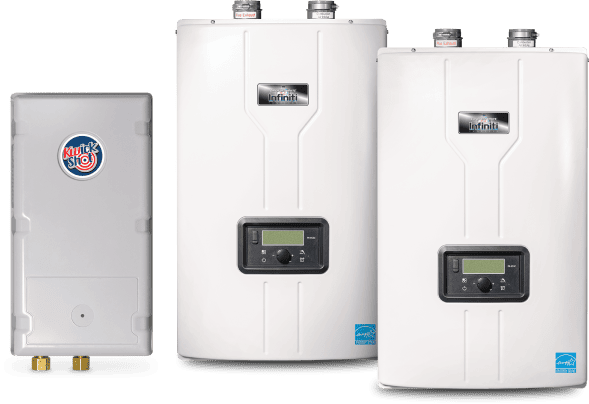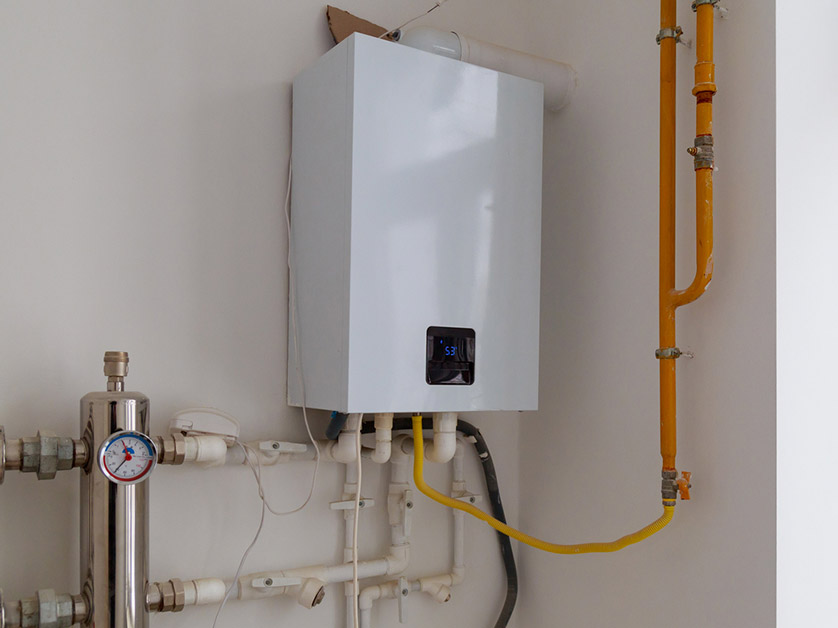Are you in search of information on Why You Should Consider a Tankless Water Heater?

In a globe where comfort and effectiveness reign supreme, it's no surprise that house owners are frequently in search of smarter methods to manage their home's energy usage and comfort. One technology that has continuously obtained appeal is the tankless water heater. But what exactly makes these systems stand apart from the conventional tank-based models a lot of us matured with? Allow's dive in and explore the benefits of tankless hot water heater, assisting you decide if it's time to make the switch in your house.
Introduction
Image this: you enter the shower after a long day, anticipating a comforting cascade of warm water, only to be welcomed by icy beads since the last individual used all of it up. Audio acquainted? Typical hot water heater keep a fixed quantity of hot water, implying you go to the mercy of that tank's supply. Tankless systems, on the other hand, warmth water as needed. Say goodbye to going out mid-shower, say goodbye to fumbling with routines just to make sure warm water is available.
Comprehending Tankless Hot Water Heater
What Are Tankless Hot Water Heater?
Tankless hot water heater, in some cases referred to as on-demand or instant hot water heater, offer hot water just as it's required. Rather than keeping gallons of pre-heated water, these units kick into activity the moment you turn on the faucet. Water travels through a warm exchanger, warming up in real-time, indicating you get a nonstop circulation of hot water without the requirement for a big container sitting lazily by.
Exactly how Do They Differ from Conventional Systems?
Conventional heaters hold a storage tank of warm water, using energy to maintain that tank at a constant temperature. Tankless devices remove the standing supply, minimizing wasted power and the bulky footprint of a large cylinder. Essentially, you're updating from a "accumulation" mindset to a "made-to-order" technique.
Common Types of Tankless Systems
Tankless hot water heater typically come in two selections: gas and electric. Gas models have a tendency to provide greater circulation rates, suitable for bigger households, while electric versions usually offer smaller sized homes and are commonly less complicated to set up. Additionally, some systems are developed for point-of-use (offering one fixture) while others can handle the whole home's hot water needs.
Key Advantages of Tankless Hot Water Heater
1. Countless Warm Water Supply
Ever needed to set up showers so everybody obtains their fair share of hot water? With tankless, that becomes a thing of the past. As long as the heater's circulation capacity isn't gone beyond, you can take back-to-back showers without developing into a popsicle.
2. Power Effectiveness and Cost Financial Savings
No more warming a titan tank's worth of water and keeping it warm all the time. Tankless heating systems minimize standby energy losses, which can reduce energy bills. While the preliminary price might be higher, the long-lasting cost savings usually justify the financial investment.
3. Space-Saving Layout
If your home is short on storage space, eliminating the bulky storage tank liberates useful space. Tankless units are portable and can typically be placed on wall surfaces, concealed in corners, or installed in limited energy wardrobes without monopolizing the whole space.
4. Longer Lifespan
A properly maintained tankless water heater can outlive its tank-based relative. Conventional containers may last 10-15 years, while tankless versions can keep downing along for two decades or even more, making them a strong investment gradually.
5. Improved Water High Quality
Keeping water in a container can in some cases cause debris buildup or a slightly "off" preference. With tankless systems, fresh water is heated right away, lowering the possibilities of sediment buildup and possibly providing cleaner-tasting water.
Factors to consider Before Changing
Though the benefits are compelling, it's important to think about a couple of aspects prior to fully dedicating.
First Investment Prices
Tankless heating units typically include a higher ahead of time cost. In between the unit itself and prospective installment modifications, the first expense could give you sticker shock. But keep in mind to view it as a long-term investment.
Installment Demands
Relying on your home's framework, you could require extra electric ability or gas line upgrades. Ensure you recognize the setup requirements and seek advice from a specialist to stay clear of surprises.
Evaluating Your Home's Water Use Patterns
If your home all at once makes use of multiple components with high warm water need, ensure the unit's circulation rate fulfills your demands. Recognizing your usage patterns assists you select the appropriate size and type of tankless heater.
Upkeep and Treatment Tips
Tankless systems are reasonably low maintenance, however they aren't set-it-and-forget-it home appliances.
Routine Cleansing and Descaling
Tough water minerals can build up in the heat exchanger, impacting effectiveness. Routine descaling (often recommended annually) maintains the system running at peak performance.
Yearly Expert Evaluations
A yearly checkup from a professional makes sure small problems are caught early. They'll evaluate the system's performance, search for leaks, and assist keep optimum performance.
Making Sure Appropriate Ventilation
For gas models, appropriate air flow is important to securely remove exhaust gases. Make certain venting systems are tidy and properly installed to avoid any prospective security threats.
Comparing Different Brands and Designs
Not all tankless hot water heater are created equivalent.
Looking Into Trusted Suppliers
Search for reliable brands with a history of generating top quality units. A dependable supplier commonly gives better client support and longer guarantees.
Checking Out Evaluations and Individual Feedback
User testimonials and feedback from next-door neighbors or buddies who have gone tankless can supply useful insights. Occasionally, real-life experiences can be extra informing than marketing sales brochures.
Installation: Do It Yourself or Specialist?
While some house owners enjoy dealing with tasks themselves, tankless installation may not be the most effective time to burst out the toolbox.
Pros and Cons of DIY Setup
A do it yourself set up can save cash, however it includes risks. Inaccurate installment can result in inefficiency or security worries. If you're handy and have experience, it might be practical-- yet wage care.
When to Call a Professional Plumbing Professional
For many, calling a pro guarantees every little thing's done appropriately. A specialist plumber recognizes regional codes, sizing requirements, and venting criteria, minimizing the threat of problems.
Taking full advantage of Effectiveness
You've purchased a tankless unit-- currently maximize its effectiveness.
Optimum Temperature Level Setups
The majority of people establish their devices in between 120-140 F. Changing the temperature can improve comfort and financial savings. Experiment to locate a sweet area that does not squander power.
Pairing with Low-Flow Fixtures
Wish to stretch your system's capacities? Think about mounting low-flow showerheads and faucets. They minimize water use, allowing your tankless system to supply a stable stream of warm water without stressing.
Ecological Effect
Tankless hot water heater straighten with greener living goals.
Lowered Carbon Impact
By using less power and only home heating water as needed, tankless systems can decrease your home's carbon footprint, minimizing your ecological influence.
Preserving Natural Resources
Less energy consumption and much less squandered hot water translate into fewer natural resources being utilized, an ecological win-win.
Who Profits The Majority Of from Tankless Heating systems?
The charm of tankless heating systems is that they can fit a variety of houses.
Large Households vs. Solitary Owners
Large families could like the countless hot water supply, while single passengers value the energy cost savings from not heating a whole container for just one person's morning shower.
House Owners with Restricted Space
If your home is short on square video, shedding the large container frees up space for other fundamentals-- or perhaps just much more elbow room.
Eco-Conscious Consumers
Going tankless aligns with environmentally friendly worths, ensuring you're not squandering energy or resources.
Future Trends in Tankless Hot Water Heater
The world of home devices is ever-evolving, and tankless water heaters are no exemption.
Smart Home Assimilation
Imagine changing your hot water heater's temperature through an app or getting upkeep signals on your phone. As smart home tech breakthroughs, we'll see even more connectivity and convenience.
Innovations in Innovation
R&D is frequently improving warm exchangers, making devices much more effective and resilient. Future versions may be also quieter, extra portable, and much better suited for varying environments.
Final thought
Picking a tankless hot water heater is greater than just upgrading your home's warm water system; it's buying long-lasting comfort, energy effectiveness, and a greener way of life. By considering your house's water use, bearing in mind installment requirements, and devoting to routine maintenance, you can take pleasure in a steady stream of hot water without the luggage of a bulky container. As technology progresses, you can expect even smarter, much more effective tankless solutions that not just make your life less complicated yet likewise benefit the planet.
Why You Should Consider a Tankless Water Heater for Your Home
Energy Efficiency and Cost Savings
Tankless water heaters, also known as on-demand water heaters, heat water only when needed. This means they don't waste energy keeping a tank of water hot constantly. This efficiency translates into substantial cost savings on your monthly energy bills.
Endless Hot Water Supply
One of the significant advantages of tankless water heaters is their ability to provide a continuous supply of hot water. Traditional tank water heaters have a limited capacity and can run out of hot water, especially during peak usage times. In contrast, tankless water heaters can provide an endless stream of hot water, making them ideal for larger families or homes with high water usage.
Space-Saving Design
Tankless water heaters are compact and take up significantly less space compared to traditional tank heaters. They can be installed on walls, under cabinets, or even outside, freeing up valuable space in your home. This makes tankless water heaters a great option for smaller homes or properties with limited space for a traditional water heater.
Longer Lifespan and Lower Maintenance
Tankless water heaters typically have a longer lifespan compared to traditional tank heaters. They can last up to 20 years or more with proper maintenance. Additionally, tankless systems are designed with replaceable parts, which can extend their lifespan further and reduce long-term maintenance costs.
Environmentally Friendly
Reducing energy consumption not only saves you money but also benefits the environment. Tankless water heaters contribute to a smaller carbon footprint by using less energy to heat water. Their energy efficiency and ability to minimize standby heat loss make them an eco-friendly choice for environmentally conscious homeowners.
Customized Temperature Control
Tankless water heaters offer precise temperature control, allowing you to set the desired temperature to meet your specific needs. This level of customization ensures you always have water at the perfect temperature for your comfort and usage requirements.
https://beantownservices.com/blog/consider-tankless-water-heater-for-your-home

As a keen person who reads on 5 Benefits of Tankless Water Heaters, I figured sharing that piece of content was essential. Make sure you take the opportunity to share this blog if you enjoyed reading it. Thanks so much for your time invested reading it.
Call Today